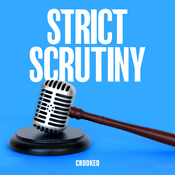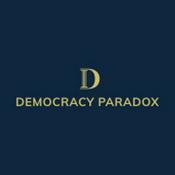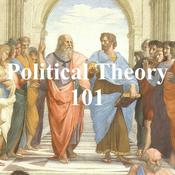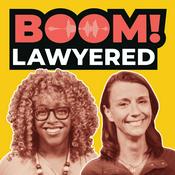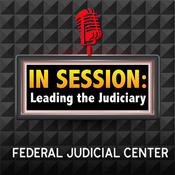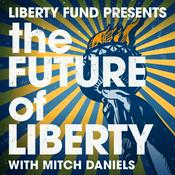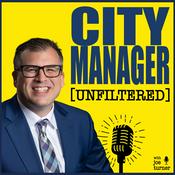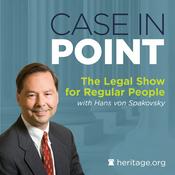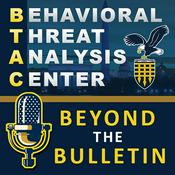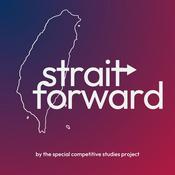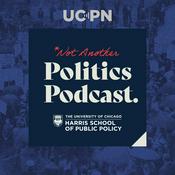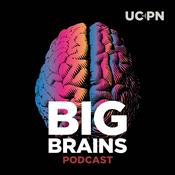41 episodes
- In this episode of Entitled, we speak with Leopoldo López about authoritarianism, resistance, and the future of Venezuela. Recorded before the U.S. intervention, the conversation centers on López’s long opposition to the Maduro regime—through political organizing, imprisonment, exile, and international advocacy.
Following the interview, Tom and Claudia reflect on developments since the conversation was recorded, turning to the U.S. intervention and its implications for sovereignty, legitimacy, and democratic change in Venezuela.
Hosted by Simplecast, an AdsWizz company. See pcm.adswizz.com for information about our collection and use of personal data for advertising. Pakistan’s Supreme Court Under Strain: A Judge Resigns Amid Constitutional Attacks and Rising Authoritarianism
12/29/2025 | 46 mins.We speak to Mansoor Ali Shah, who served as the Senior Puisne Judge of the Supreme Court of Pakistan until just last month. Shah is one of two judges who resigned after parliament passed a constitutional amendment that curbed its remit and will no longer allow the Supreme Court to hear constitutional cases. The judges say the reform “stands as a grave assault on the constitution”.
Hosted by Simplecast, an AdsWizz company. See pcm.adswizz.com for information about our collection and use of personal data for advertising.- Why has gender—once a term of analysis and identity—become one of the most explosive political flashpoints of our time? From the halls of the United Nations to state legislatures across the United States, debates over gender and sexuality now shape elections, social movements, and international alliances.
In this live episode of the "Entitled" podcast, hosts Claudia Flores and Tom Ginsburg sit down with Graeme Reid, U.N. Independent Expert on Sexual Orientation and Gender Identity, and Emily Bazelon, staff writer for The New York Times Magazine and senior research fellow at Yale Law School, to explore how gender has become a global battleground. Together, they’ll unpack the forces driving the backlash — from the rise of nationalist and religious movements to the politics of fear and control — and examine why gender has become a defining priority of the Trump administration and its international allies. Join us for a timely, provocative conversation about the past, present, and future of the global gender wars — and what’s really at stake when societies decide who gets to define gender itself.
Hosted by Simplecast, an AdsWizz company. See pcm.adswizz.com for information about our collection and use of personal data for advertising. - This year, the US government has issued sanctions on a number of experts from the UN to the International Criminal Court for speaking out about human rights in Gaza. President Donald Trump authorized sanctions on the International Criminal Court (ICC) and its Chief Prosecutor Karim Khan with the goal of stopping the ICC from undertaking its independent mandate. UN experts strongly condemned the move, calling it “an attack on global rule of law."
In this episode of Entitled, we discuss how sanctions are being used and abused by the Trump administration, and how other UN members are responding to the sanctioning of their colleagues for speaking out.
Hosted by Simplecast, an AdsWizz company. See pcm.adswizz.com for information about our collection and use of personal data for advertising. - When South African runner Caster Semenya dominated international competitions, sports authorities demanded she prove she was “really” a woman. The rules they created—targeting women with intersex traits or naturally higher testosterone—have since reshaped the future of women’s sports.
In this episode of Entitled, we unpack the controversial regulations of World Athletics, the recent European Court of Human Rights ruling, and the wider human rights questions at stake. Are these policies about fairness—or about enforcing outdated ideas of gender?
Hosted by Simplecast, an AdsWizz company. See pcm.adswizz.com for information about our collection and use of personal data for advertising.
More Government podcasts
Trending Government podcasts
About Entitled
Rights matter, but conversations about rights can be polarizing, confusing and frustrating. Lawyers and law professors Claudia Flores and Tom Ginsburg have traveled the world getting into the weeds of global human rights debates. On Entitled, they use that expertise to explore the stories and thorny questions around why rights matter and what’s the matter with rights. Entitled is produced with the support of University of Chicago Law School and Yale Law School, and is part of the award winning University of Chicago Podcast Network.
Podcast websiteListen to Entitled, Strict Scrutiny and many other podcasts from around the world with the radio.net app

Get the free radio.net app
- Stations and podcasts to bookmark
- Stream via Wi-Fi or Bluetooth
- Supports Carplay & Android Auto
- Many other app features
Get the free radio.net app
- Stations and podcasts to bookmark
- Stream via Wi-Fi or Bluetooth
- Supports Carplay & Android Auto
- Many other app features


Entitled
Scan code,
download the app,
start listening.
download the app,
start listening.

